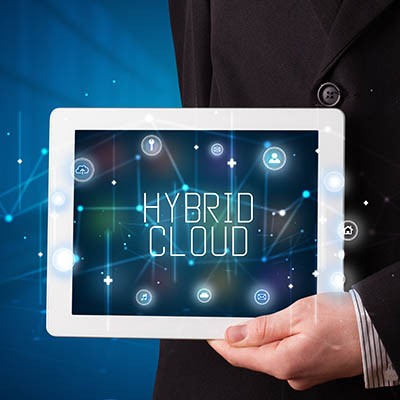BSGTech Blog
The Usefulness of the Hybrid Cloud and Its Costs
It’s no secret that cloud computing brings a great many benefits to businesses of all types. Being able to have a computing platform that can be accessed from nearly anywhere enhances your staff’s ability to collaborate and be productive, even if they aren’t sitting at the office.
Many businesses, concerned about the security of their data have some trepidation about pulling the trigger on moving to a cloud platform. For these companies, private cloud servers may fit their needs, but the money spent designing the right cloud solution, implementing it, and constantly maintaining it may be outside of their budget constraints. Today, businesses have found a solution, that is creating a hybrid cloud environment that allows them to protect the applications and data they need the most control over, while still utilizing public cloud resources that allow them to curtail costs a bit.
There are extra costs associated with moving to a hybrid cloud, however. They will likely still be more attractive than the costs your business would incur with only a private cloud infrastructure, but they are going to cost you more than utilizing only public cloud resources. Some additional costs that you should be aware of include:
Management
Managing a hybrid cloud environment brings some additional challenges. When managing private cloud resources, your IT administrator only needs to focus on managing the servers and network. With a hybrid, IT admins are now being asked to manage the on-premise cloud as well as the public cloud (or clouds) you choose to integrate into the hybrid environment. More coverage means more cost.
Integration and Customization
The whole benefit of the hybrid cloud, apart from the initial cost savings you’ll see by incorporating public cloud resources, is that you will be able to set up your IT infrastructure in a way where it works best for your business. To do this, it will likely take more time dealing with cloud vendors and finding the right setup.
Software
In order for the hybrid cloud to be effective, you will need an integration platform that provides the ability for on premise-hosted applications and data to work with externally-hosted applications and data. This software, often called middleware, will take time and effort to properly incorporate.
Storage
The long-term storage costs associated with a hybrid cloud rollout can be wildly variable, so setting up the platform to account for volume growth at the beginning has to be a consideration as adding it as you go could get extraordinarily complicated.
Compliance
Most businesses have to meet some type of regulatory compliance and, if using a hybrid platform, all of their external resources will have to be audited to ensure that they meet the standards put forth by the regulatory body, whether they be mandated by federal or state agencies or from an industry-based body.
A hybrid cloud system is an advantageous platform for any business if you can handle the massive amount of considerations and variable costs that come with integrating one.
For more information, call the IT professionals at BSGtech today at (866) 546-1004.


Comments